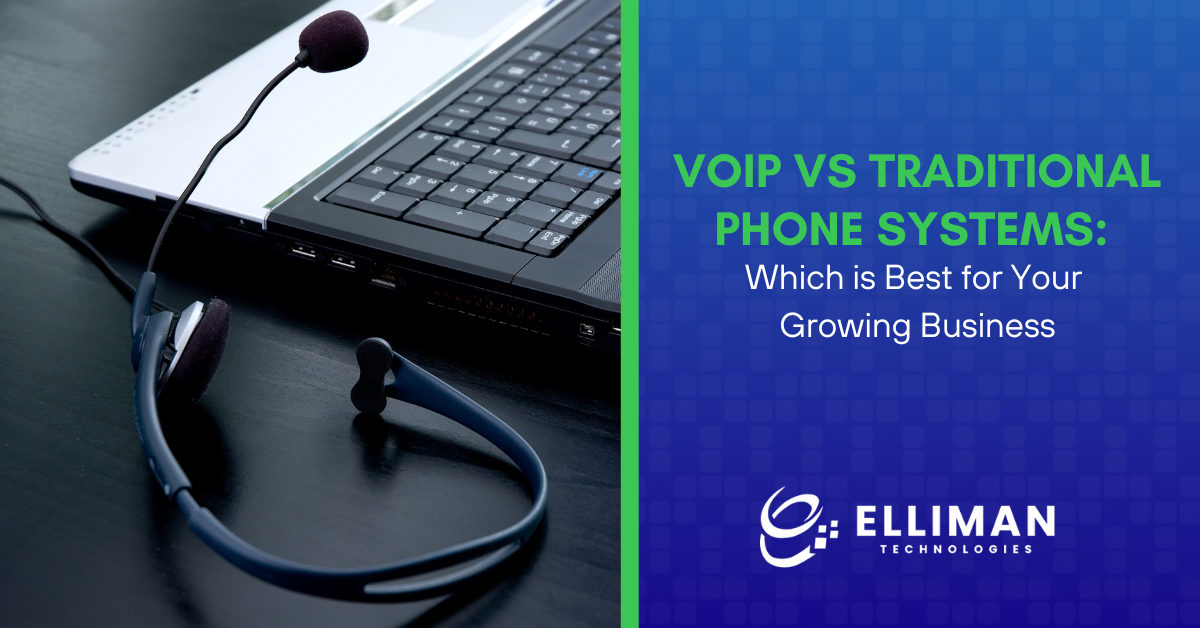As your business grows, choosing the right phone system becomes essential. If you’re using a landline or considering a modern upgrade like VoIP (Voice over Internet Protocol), your decision will impact communication, costs, and flexibility. A study by Market.us Scoop shows that the VoIP market is projected to surpass $750 billion by 2034, growing at 15.8% annually. Thus, it’s clear that many are moving toward smarter VoIP for business.
VoIP systems don’t just offer voice calls, they also support video conferencing, voicemail-to-email, call-forwarding, and remote access. Unlike landlines that require physical locations, VoIP’s cloud-based setup scales with your business. If you are expanding your office, hiring new staff, or going remote, VoIP solutions are a reliable, scalable, and cost-effective solution that does not involve bulky hardware or on-site installation. For businesses that prioritize efficiency and agility, upgrading from a traditional landline-based system is a smart decision that future-proofs your operations.
What Is VoIP and How Does It Work?
VoIP allows both outgoing and incoming calls over the Internet. How does this work? Your voice is translated into computer signals that are carried over the internet, allowing you to use any device, as long as you have an internet connection.
Whereas landlines use wires and an analog signal. They’re location-based and often need a technician for installation or updates.
Pros and Cons: VoIP Phone Systems
VoIP is popular among modern businesses, especially those looking to expand. Still, like any solution, it has both benefits and trade-offs.
Advantages of VoIP
Cost-Effective
Because it runs on your existing internet, there’s no need for pricey physical setups. Some plans start around $10 per user monthly—great for keeping costs in check as your team grows.
Scalability and Flexibility
Need to add or remove lines? You can do that digitally in minutes, without waiting on a technician—ideal for hybrid or remote teams.
Feature-Rich
VoIP goes beyond voice—it includes video calls, instant messaging, call logging, and integrations with tools like Microsoft Teams or Slack.
Portability
Employees can use their number at home, in the office, or even when they travel, making communication quick and efficient.
Great for Global Teams
You can assign local numbers to team members across the globe without the high price tag of international calls.
Drawbacks of VoIP
Relies on Internet Connection
Your internet speed and stability affect call quality. If the connection drops, so might your call.
Emergency Services Can Be Tricky
Because VoIP isn’t tied to a physical address, it can be harder for emergency responders to pinpoint your location.
Potential for Audio Glitches
Heavy internet usage or slow speeds can lead to delays, echoes, or dropped audio—especially during peak hours.
Pros and Cons: Traditional Landline Systems
Traditional phone systems still serve a purpose, especially where stability is non-negotiable.
Advantages of Landlines
Reliable in Emergencies
Landlines don’t need your building’s power or internet. They often stay operational during outages, making them dependable in a crisis.
Consistent Audio
Physical wires deliver clear, interference-free audio—no lags or drops.
Straightforward to Use
Just pick up the handset and dial. No setup, no software—easy for anyone.
Drawbacks of Landlines
Higher Operating Costs
Between setup and monthly service, the costs can climb. For instance, a company with 100 employees at $25 per line could be spending $2,500 a month.
Limited Capabilities
No video, texting, or integrations—landlines are strictly voice.
Tied to Desks
They work at fixed locations, so if no one’s around to answer, calls get missed.
Which Phone System Fits Your Growing Business?
Choosing the phone system that adapts to your expanding business is not a generic process, but requires the right questions and decisions.
Consider your team size and distribution. If you have many remote workers or multiple offices, the mobility and flexibility of a VoIP system can make team collaboration accessible regardless of their location.
Next, consider what your business needs. For basic calls, a traditional landline will do the job, but if you need video conferencing, call recording, or the ability to send texts, VoIP is far superior in terms of options.
Another factor to consider is budget. With VoIP, your upfront equipment and maintenance costs are extremely low because it uses your current internet infrastructure.
Finally, evaluate how important call reliability is for your operations. If you need uninterrupted calls and your internet is not reliable, a traditional landline could be the peace of mind you need.
Future-Proof Your Business Communications
When your business is expanding, your communications tools should, too. While landlines have their place in some situations, VoIP gives you the flexibility, integrations, and functionalities that growing teams need. In short, VoIP isn’t just a replacement for landlines—it’s an upgrade. And for businesses focused on growth, agility, and customer service, it can be a game-changer.
The ability to accommodate your remote workers, reduce expenses, and integrate with tools you already have means that VoIP is a great investment.
If you are looking for a serious upgrade, get in touch with Elliman Technologies. We help businesses shift to VoIP systems while providing tailored solutions according to your business goals.
Ready to take your business communication to the next level? Reach out to Elliman Technologies today and schedule a consultation to find the right VoIP solution for your team.
Need Help Now? Just Ask!
Whether you’re having an IT emergency, facing a new cyber threat, looking for technology consulting, or just ready for a new digital plan, we’re here to help. Contact Elliman Technologies LLC now.

